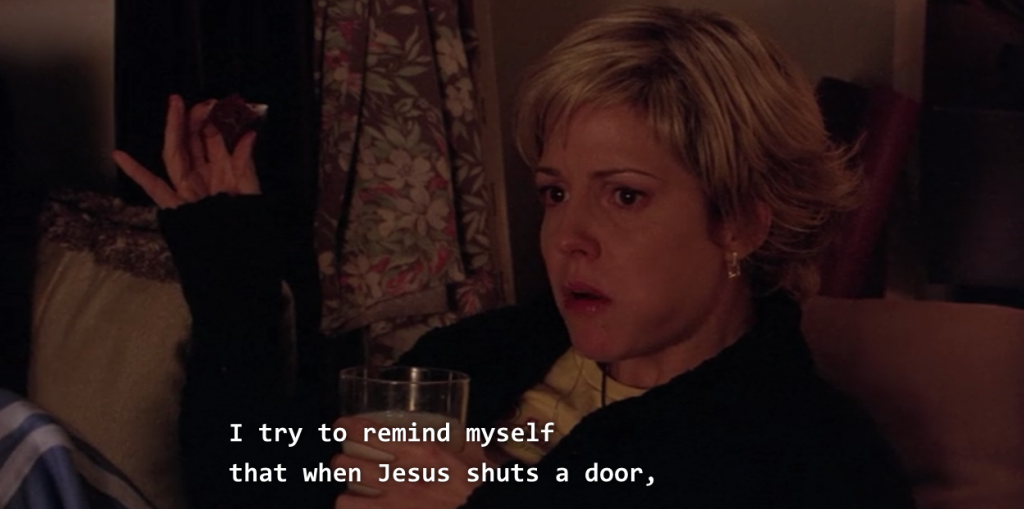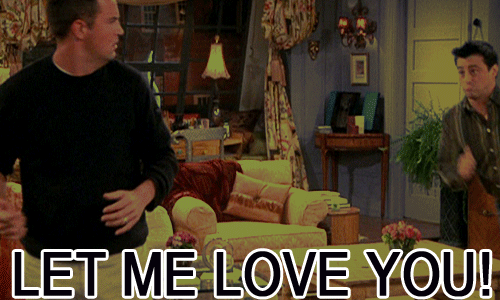Sentimental Claptrap #4: Black and White Quantifiers of Faith
Oh, man. This is the one that I react to with all the tell-tale bluster of a guilty conscience. When I converted, terms like “cafeteria Catholic” and “Kennedy Catholic” were tossed off as matter-of-fact inversions of the “faithful Catholic” or “traditional Catholic” I would undoubtedly strive to be. This is not exactly because my friends at UD were self-righteous and judgmental, just as I know those terms aren’t always used in the blogosphere with a sense of smug superiority. Rather, for Catholics at least, there is a clearly defined doctrine that we are expected to adhere to. If we choose not to follow that doctrine in our personal lives, we’re breaking the vows we made at our confirmation. If we choose not to in a high-profile and public manner like the Kennedys, we’re not only breaking our vow, but also openly rebelling against the Church and causing scandal. It’s a serious matter, and the Church takes it seriously. It’s natural that the faithful would also take it seriously.
It took me a long time to realize that grouping people using those quantifiers is a manifestation of personal pride that breeds a communal spirit of self-righteousness. It’s true that the hierarchy of the Church does not ignore the defiant and schismatic. It’s also true that it often seems like they’re ignored because the priests and bishops move slowly, taking these people on an individual basis, remembering always that they are souls beloved of Christ and attempting reconciliation at every turn, while remaining ever mindful that the souls of the faithful must be protected. I imagine it’s an incredibly delicate task that is not aided by us layfolk, ranting and raving about the unfaithfulness of our neighbors with increasingly Macarthian paranoia.
Seriously, everything from the number of children someone has to the length (or absence) of their skirt is fair game. I’ve heard aspersions cast upon people’s fidelity to the Church for things like not veiling or preferring guitars. It has gone far beyond public adherence to doctrine into the realm of conjecture, where people’s souls are weighed and found wanting by their fellow sinners, and judgment handed down by means of these quantifiers. She’s a Kennedy Catholic; he’s a rad trad; they’re cafeteria Catholics; she’s one of those Latin Mass nutters.
It’s important to note that I’m not talking about public obedience and disobedience to doctrine here, nor am I advocating a kind of moral relativism where one person’s right can be another person’s wrong. I mean, that’s crap, and that way leads to the path of insanity. I’m talking about judgments made purely on assumptions. Those two short-haired women who come to Mass each Sunday and sit close to each other are obviously lesbians, so Father should really stop letting them receive. That couple with two kids spaced five years apart have to be contracepting, doesn’t Father care about upholding doctrine? Someone should really tell Father that those two are cohabitating so he knows not to give them communion. Those girls in miniskirts clearly don’t care about the holy sacrifice of the Mass, and that kind of irreverence must not be tolerated.
These labels require starting from the basic assumption that you are right because you are somehow justified in the sight of God. That is literally the only starting point for these public accusations between people of the same religion; you must believe that God agrees with you before you point out how and why he doesn’t agree with that lady. You must be confident that you are walking in the path of righteousness before you explain why that family isn’t.
As bad as it is among Catholics, I think it’s almost worse with Protestants. At least we have the benefit of clearly defined doctrine; they don’t. Because there exists no objective standard of beliefs for the myriad of Protestant denominations, terms like “believer, unbeliever, backsliding” usually reveal more about the personal belief of the accuser than they do about the person being accused. That’s not to say that Protestants don’t have objective standards of morality, but in the absence of a unifying doctrine those standards are fairly malleable. Thus judgment of others requires a much greater confidence in one’s own justification. But then again, confidence in one’s own justification is pretty much a cornerstone of the Protestant faith. While quantifying the faith of others may require a greater degree of pride for a Protestant, that pride is easier to understand than it is in a Catholic. It’s called “Catholic guilt” for a reason, after all.
But I think there’s something even deeper than pride at work when we attempt to quantify the faith of others. Addie struck on it in her original post:
We know our own doubtful hearts enough to know that belief and unbelief so often coexist. Those of us who follow the Christian faith know that world around us feels truer than the invisible God who holds it together.
Oh, how profoundly do I understand the ways belief and unbelief can often coexist. As a Catholic, I have to take it further and admit how profoundly I understand the ways obedience and disobedience can often coexist. Sometimes I can’t bear the cognitive dissonance of walking the narrow path and the wide path at the same damn time, and sometimes when I sigh in the relief of having gotten my whole mind and my whole will on the narrow path at last, I turn around and see that my soul has scampered off along the wide path.
Working out my own salvation is more than enough for me to handle. But it was only when I realized that my own salvation was something I actually had to work out that I began to stop quantifying the faith of others. When I finally grasped that hell was a possibility for me, a “faithful Catholic”, I opened myself up to the reality of fear. Fear of hell, certainly, but mostly just the daily fear of being wrong. The discomfort of letting doubt into my life, first as a distant possibility but then, gradually, as a constant companion, an intimate friend, and finally a priceless ally. These days, I try to question everything I say, think, and feel; if I always allow that I might be wrong, the chances are much greater that I’ll realize when I am and correct my course.
It’s not a comfortable way to live, though. It means almost daily mortification, and I mean the colloquial kind, where I want the ground to open up and swallow me. I’m wrong a lot, much more often than I’m right, and it really sucks to admit it all the time. It’s embarrassing and discouraging, but it’s also instructive. I know myself well enough to know that despite all appearances to the contrary, faith and virtue are things I seek. I also know that conversion is a life-long process, and that grace can change a person profoundly even while they appear to be stagnating, disbelieving, or backsliding.
I understand why people use these terms for each other: it’s equal parts self-righteousness and self-assurance, relying on pride to banish fear. It never comes from a good place, though, and this I know from experience. True charity would never use such quantifiers to dismiss the struggles of a soul enmeshed in sin, however that sin manifests itself. Love requires that you do something much different than tritely identifying the spiritual state of another. Love demands that you lay down your life for your brother, and I can’t think of a better place to start than laying down your self-assurance and certainty.You might find that you were right all along, but then again, you might find that you weren’t.
Wondering what you’ve stumbled into and why? Here are some helpful background links:
Part I: The Bible Clearly Says
Part II: God Will Never Give You More than You Can Handle
Addie Zierman’s post in The Washington Post that started this whole shebang











